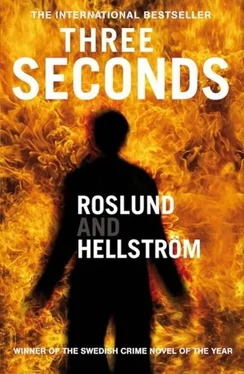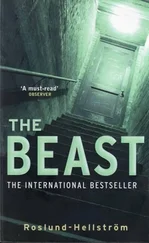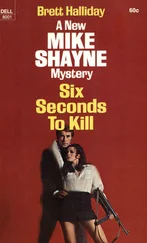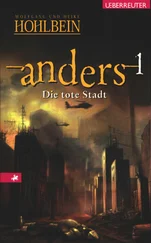I must go to Hermansson afterwards.
"I don't know him. Even though we've been here almost the same length of time. It just turned out that way. But… he seems like a nice enough guy. Why?"
"I just heard his name today in the wrong circumstances."
"What do you mean?"
"We'll talk about that later too."
Sven didn't ask anymore questions. He knew he wouldn't get any answers yet.
"I've got the first report on Hoffmann Security AB. You interested?" "You know I am."
He put two pieces of paper down on Ewert's desk.
"I want you to have a look. Come over here."
Ewert stood beside Sven.
"A close company with annual reports and normal articles of association. I can look into that more, if you want, take a really good look at the figures."
He pointed at the second piece of paper.
"But this, I want you to have a look at this, right now."
A drawing of four squares stacked on top of each other.
"The ownership structure, Ewert. This is interesting. A board that consists of three people. Piet Hoffmann, Zofia Hoffmann, and a Polish citizen, Stanislaw Rosloniec."
A Polish citizen.
"I've run a check on Rosloniec. He lives in Warsaw, is not registered in any international criminal intelligence databases and-now it gets really interesting-is employed by a Polish company called Wojtek Security International."
Wojtek.
Ewert Grens searched Sven's pattern of squares but saw an airport in Denmark and a detective superintendent called Jacob Andersen.
Eighteen days ago.
They had sat in a meeting room at Kastrup police station and eaten greasy pastries and Andersen had spoken about a Danish informant who was supposed to buy amphetamines. In an apartment in Stockholm. With two Poles and their Swedish contact.
Swedish contact.
"Damn it „. hang on a minute, Sven!"
Grens pulled open one of his desk drawers and took out a CD player and the CD of the voice that Krantz had burned for him. Headphones on and three sentences he knew by heart.
A dead man. Vdstrnannagatan 79. Fourth floor.
He removed the headphones and put them on Sven's head.
"Listen."
Sven Sundkvist had analyzed the recording from Emergency Services on the ninth of May at 12:37:50 as many times as Ewert.
And now listen to this."
The voice had been stored in one of the computer's sound files. They had both encountered it when they were waiting in a churchyard twenty-four hours ago.
"He's a dead man in three minutes."
The one whispered dead and the other screamed dead, but when Ewert Grens and Sven Sundkvist listened carefully and compared the pronunciation of the d and the e and the a, it was obvious.
It was the same voice.
"It's him."
"It sure as hell is him, Sven! It was Hoffmann who was in the apartment! It was Hoffmann who raised the alarm!"
Grens was already on his way out of the room.
Wojtek is the Polish mafia.
Hoffmann Security AB is linked to Wojtek.
The car was parked on Bergsgatan and he hurried down the stairs, even though the elevator was empty.
So why did you raise the alarm?
So why did you shoot another member in solitary confinement and blow a third member up?
He turned out of Bergsgatan and drove down Hantverkargatan toward the city. He was going to visit the person whose death he was responsible for.
He stopped the car in a bus lane outside the door to Vasagatan 42. A couple of minutes, then Nils Krantz knocked on the window. "Anything in particular?"
"I don't know yet. It just feels right. An hour maybe, I have to think." "Here, keep them for the moment. I'll let you know if I need them." Krantz gave him a set of keys and Ewert Grens put it in the inner pocket of his jacket.
"By the way, Ewert…"
The forensic scientist had stopped a bit farther down the pavement.
"I've identified the two explosives. Pentyl and nitroglycerine. It was the pentyl that caused the actual explosion, the wave that forced out the window and the heat that ignited the diesel. And the nitroglycerine had been applied directly onto someone's skin-I don't know whose yet, though."
Grens went up the stairs of one of the many buildings in central Stockholm from the turn of the century, the first few years of the 1900s when the cityscape changed dramatically.
He stopped in front of a door on the first floor.
Hoffmann Security AB. Same old trick. A security firm as a front for the Eastern European mafia.
He opened the door with the keys that he'd got from Krantz.
A beautiful apartment, shining parquet floor, high ceilings, white walls. He looked out of the window with a view of Kungsbron and the Vasa theatre, an elderly couple on their way in to the evening performance, as he had often thought of doing himself, but never gotten around to.
You were sent up for a drug crime. But you weren't an amphetamine dealer. He walked down the hall and went into what must once have been the drawing room, but was now an office with two gun cabinets by an open fireplace.
You had links with Wojtek. But you were not a member of the mafia.
He sat down in the chair by the desk that he guessed Hoffmann must have sat in.
You were someone else.
He got up again and wandered around the apartment, looked in the two empty gun cabinets, touched the deactivated alarm, rinsed out some dirty glasses.
Who?
When he left Hoffmann Security AB, Grens had gone to look at the storage spaces that belonged to the apartment. He had opened a storeroom in the cellar with a strong smell of damp, and he had walked around in the loft with a fan heater whirring above his head while he looked for a storeroom that was more or less empty, except for a hammer and chisel that were lying on top of a pile of old tires.
It was late, and he should perhaps have driven the kilometer from the door on Vasagatan to his own flat on Sveavägen, but the anger and restlessness pushed back the tiredness-he wouldn't sleep tonight either.
The corridor of the homicide unit was waiting, abandoned. His colleagues would rather spend the first summer evenings with a glass of wine at one of the outside cafes on Kungsholmen followed by a slow walk home, than with twenty-four parallel investigations and unpaid overtime in a characterless office. He didn't feel left out, didn't miss it. He had chosen long ago not to take part and your own choice can never become ugly loneliness. This evening it would be a report on a shooting in a prison and tomorrow evening it would be a report on another shooting. There was always an investigation that was a trauma for the person who was shot, bat for the investigator generated a vicarious sense of belonging. Grens was almost at the coffee machine and two plastic cups of blackness when he stopped by his pigeonhole and saw a large padded envelope in the pile of unopened letters; too many damn reference lists and soulless mass mailings. He pulled it out and weighed it in his hand-not particularly heavy-turned it over without seeing any sender. His name and address were easy to read, a man's handwriting, he was sure of that, something square, unrhythmical, almost sharp about it, possibly in felt pen.
Ewert Grens put the envelope down in the middle of the desk and stared at it while he emptied the first cup. Sometimes you just get a feeling, impossible to explain. He opened a drawer and a bag with unused rubber gloves, put on a pair and opened the end of the envelope with his index finger. He peeped cautiously in. No letter, no accompanying text or paper.
He counted five things, took them out one at a time and placed them in a row in front of him, between the files of ongoing investigations.
Читать дальше












